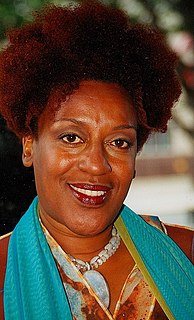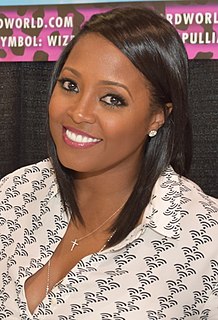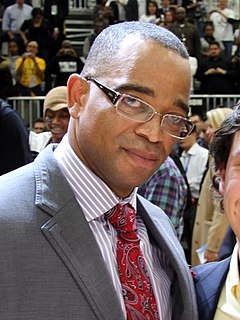A Quote by C. C. H. Pounder
The thing about being black and having a different accent, in the beginning, is that it makes you foreign.
Related Quotes
I felt like it was a courageous show [Black-ish] from the beginning. We are a black family - we're not a family that happens to be black. But the show is not even about us being black. The show is about us being a family. That is groundbreaking - on TV, the black characters either happen to be black or they're the "black character," where everything they say is about being black. I think that's the genius.
The important thing about travel in foreign lands is that it breaks the speech habits and makes you blab less, and breaks the habitual space-feeling because of different village plans and different landscapes. It is less important that there are different mores, for you counteract these with your own reaction-formations.




































